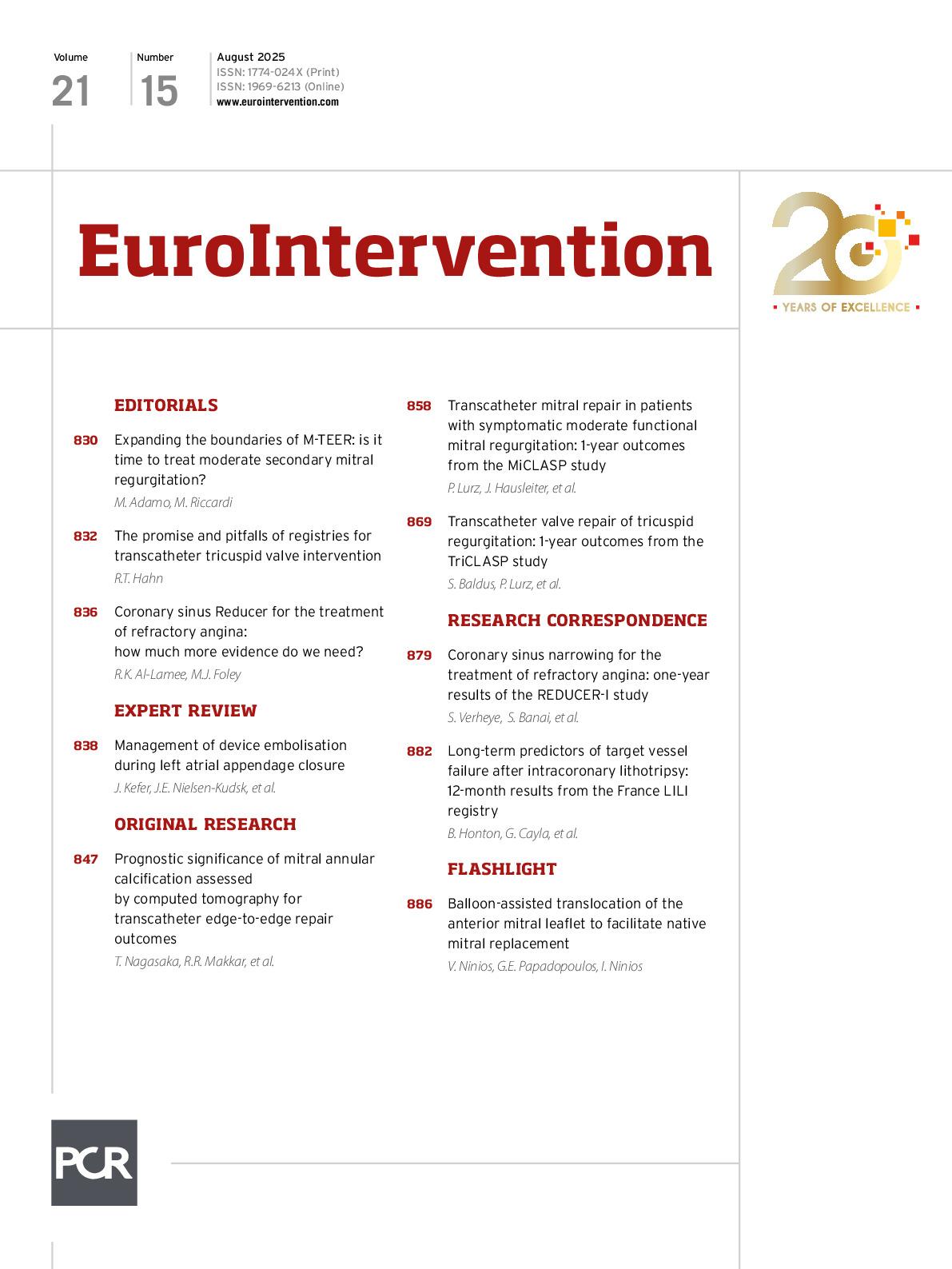Mitral transcatheter edge-to-edge repair (M-TEER) is the gold-standard therapy for carefully selected patients with severe ventricular secondary mitral regurgitation (SMR) who remain symptomatic despite guideline-directed medical therapy (GDMT)1. However, the residual 5-year risk of death and heart failure (HF) hospitalisation after intervention in these patients is very high23. Furthermore, moderate residual mitral regurgitation (MR) after M-TEER is associated with an increased risk of clinical events as compared to mild or less residual MR4. The latter is in line with epidemiological data showing a possible prognostic role of moderate MR in HF populations5. Recently, the RESHAPE-HF2 trial, including 53% of patients with an effective regurgitant orifice area (EROA) <0.30 cm2 and showing a beneficial effect of M-TEER+GDMT as compared to GDMT alone regardless of baseline SMR severity, has raised the question of whether M-TEER indication can be expanded to patients with moderate ventricular SMR6. In addition, an analysis from the EXPANDed studies – single-arm prospective registries evaluating the safety and efficacy of the latest-generation MitraClip (Abbott) − reported favourable outcomes in a subgroup of patients...
Sign up for free!
Join us for free and access thousands of articles from EuroIntervention, as well as presentations, videos, cases from PCRonline.com

